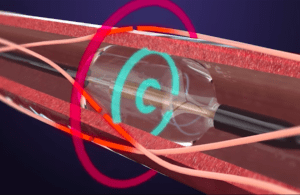
Recor Medical announced the first commercial uses of its Paradise ultrasound renal denervation (uRDN) system for treating hypertension.
The first commercial uses follow the company’s landmark FDA approval for Paradise last week. Approval allows for the use of Paradise as an adjunctive treatment option when lifestyle changes and medications fail to adequately control a patient’s blood pressure.
Recor edged out Medtronic in the race to offer the first FDA-approved RDN system that treats hypertension.
The first procedures took place in New York, Ohio and in California. Dr. Ajay J. Kirtane and Dr. Sahil A. Parikh conducted procedures at NewYork-Presbyterian/Columbia University Irving Medical Center. At the Smidt Heart Institute at Cedars-Sinai in Los Angeles, Dr. Suhail Dohad and Dr. Raj Makkar conducted theirs. Dr. Vijay Iyer and Dr. Aravinda Nanjundappa also performed procedures at Gates Vascular Institute in Buffalo, New York, and Cleveland Clinic in Cleveland, Ohio, respectively.
“This new renal denervation technology for a high-risk patient population – individuals with difficult-to-control hypertension – has been long awaited,” said Nanjundappa. “We look forward to offering this procedure now to those that will likely derive benefit.”
Paradise technology denervates the sympathetic nerves surrounding the renal arteries. This lowers blood pressure by reducing the overactivity that can lead to hypertension.
The system delivers two to three doses of 360-degree ultrasound energy, lasting seven seconds each. The energy travels through each of the main renal arteries to the surrounding nerves. Its catheter features the Recor HydroCooling system that circulates sterile water during the procedure to protect the renal artery wall.